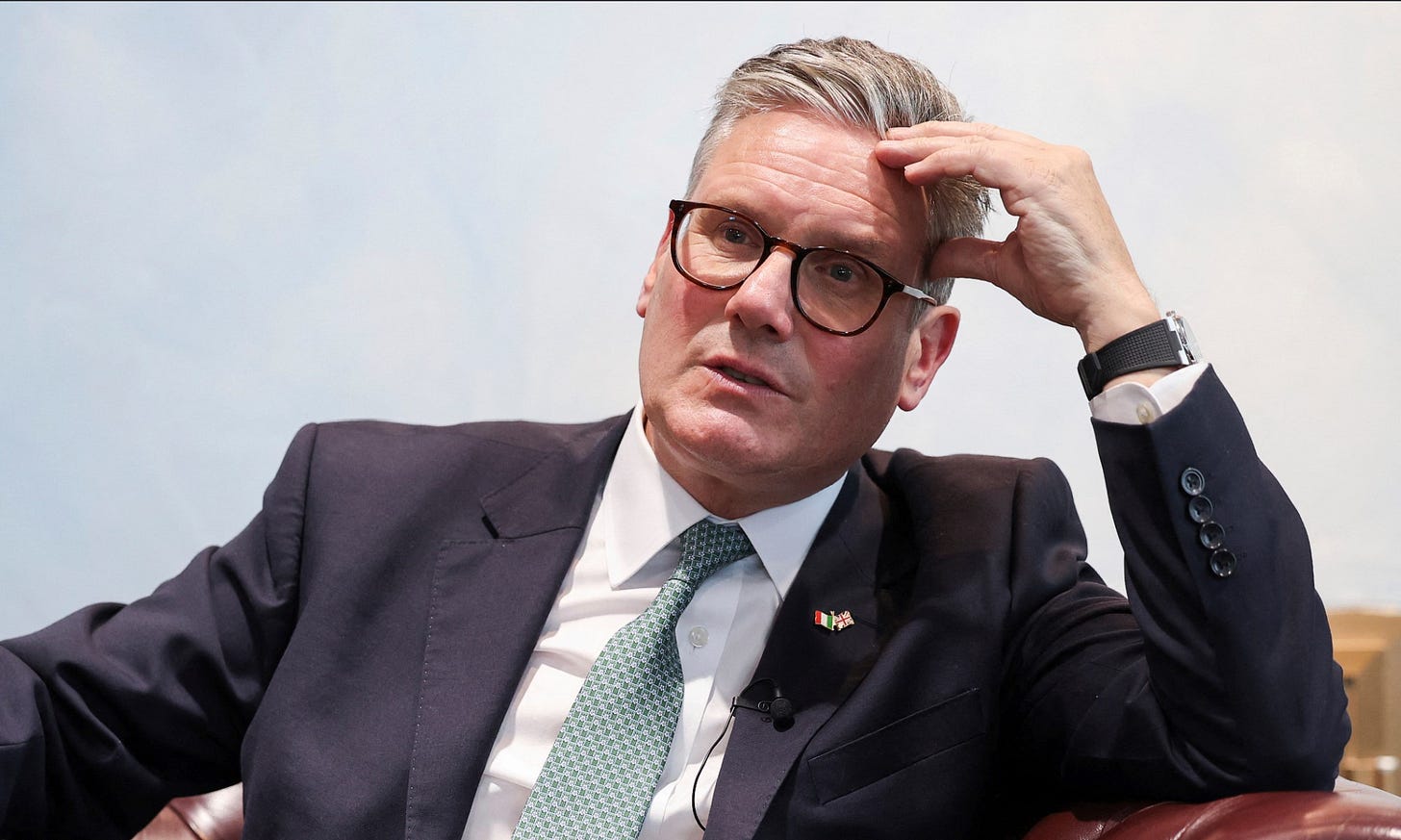U.K.'s Prime Minister Surrenders on Trump's Tariffs: 'The Era of Globalisation is Over'
This is a seismic shift in international relations, which very well could be the intended result of Trump’s “Liberation Day” announcement.
For over thirty years, world leaders have sold the masses on the notion that free trade and open borders were the tide that would lift all boats.
Now, in 2025, with Donald Trump back in the White House and the global economy tilting on its axis, even Prime Minister Keir Starmer is admitting what millions of working people have long suspected: the game was rigged for government insiders and globalist elites. The era of globalisation is now “over.”
In The Sunday Times, a Downing Street official provided a signal of the tectonic changes that are to come for the world order.
A Downing Street official said: “Trump has done something that we don’t agree with but there’s a reason why people are behind him on this. The world has changed, globalisation is over and we are now in a new era. We’ve got to demonstrate that our approach, a more active Labour government, a more reformist government, can provide the answers for people in every part of this country.”
This is a seismic shift in international relations, which very well could be the intended result of Trump’s “shock and awe” tariff announcement. This may truly be “Liberation Day.”
For Keir Starmer, who has spent his premiership cultivating an image of calm managerialism, this shift in tone is colossal. He is not just reacting to Trump’s tariffs—punitive, sweeping, and already costing British exporters dearly—he is acknowledging that the economic model of the past generation has failed.
In the Saturday edition of The Telegraph, Starmer personally went even further:
First it was defence and national security. Now it is the global economy and trade. Old assumptions can no longer be taken for granted. The world as we knew it has gone. We must rise to meet the moment.
We are ready for what comes next. The new world is less governed by established rules and more by deals and alliances. It demands the best of British virtues – cool heads, pragmatism and a clear understanding of our national interest.
This is where his balancing act begins to look less like strategy and more like contradiction. On one hand, he acknowledges the “seismic” shift. On the other, he still clings to the idea of a globalist order—one that voters no longer trust.
“People are fed up to the back teeth with insecurity in their lives and in their community,” he admitted.
Real wages around the world have stagnated in recent years. Entire towns—once industrial heartlands—have been hollowed out by offshoring and deindustrialization. America’s trade deficit has become structural, and the benefits of globalisation have flowed overwhelmingly from Main Street to Wall Street.
The public knows this. The political class has only just caught up.
Prime Minister Starmer is now adopting economic policies that mirror those being implemented in the United States under Trump.
“We must also go further,” he declared. “This week we will turbocharge plans that will improve our domestic competitiveness… We stand ready to use industrial policy to help shelter British business from the storm.”
This is exactly what Donald Trump is trying to do in America.
It is nearly inconceivable for an intellectually honest person to defend a globalization status quo that has contributed to the United States piling up almost insurmountable debts, while compromising its domestic security.
It is thus virtually impossible to condemn the president for being incompetent on trade policy, when Trump is getting the intended effect: Pulling the United States back from the globalist order that has undermined America’s self-sufficiency.
In a perfect world, trade barriers would not be necessary. All nations would be promoting freedom, defending human rights, and adhering to market principles.
Since this is far from the case, the question must be asked: Why are trade barriers acceptable for America’s trading partners, but not for the United States?




Your last line is what I have been telling everyone I know who is expressing any concern about these tariffs. We have been taught since I was young that tariffs are bad. If that is true then why is it ok for everyone else? If we implement tariffs that mirror what is done to us then why is that bad? Our leaders have screwed the American people ever since they let China become a trading partner instead of a pariah.